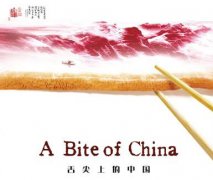审查制度的周旋者 伊朗导演阿巴斯
编辑:高中作文网 阅读 次TEHRAN — It was a hot June evening last year when my wife and I received an invitation for a gathering at a rooftop garden here. No reason for the event was given, but when we walked in — carelessly, without gifts — it turned out that a monument of cinema was celebrating his 75th birthday.
德黑兰——去年6月一个炎热的傍晚,我和妻子收到了一份邀请,是在当地一座屋顶花园的聚会。邀请函没有给出聚会的原因,而当我们漫不经心地什么礼物都没带就来到聚会地点时,发现原来是一位电影大师在庆祝75岁生日。
It was a surprise get-together, and the guest of honor, Abbas Kiarostami — a filmmaker, photographer and poet — quietly and modestly received congratulations, the same way he had received dozens of international awards for his movies.
那是一次意想不到的聚会,寿星是阿巴斯·基亚罗斯塔米(Abbas Kiarostami),一位电影人、摄影师和诗人。他安静而谦逊地接受着人们的祝贺,和他在接受许多国际电影奖项时一样。
His trusted assistant, Hamideh Razavi, had invited intellectuals, cinematographers, actors and actresses, and journalists like me to celebrate a man who was one of the most internationally well known Iranians alive. Ms. Razavi made the rounds, hopping from guest to guest while Mr. Kiarostami, wearing his signature sunglasses, sat surrounded by friends and acquaintances. He was silent, shy almost, as he had always been.
他信赖的助手哈米黛·拉扎维(Hamideh Razavi)邀请了知识分子、摄影师、演员,以及像我这样的记者来为他庆祝。基亚罗斯塔米是现今伊朗最具国际声誉的人物之一。拉扎维匆匆地与大家一一打招呼,而基亚罗斯塔米则戴着自己标志性的墨镜,在朋友和熟人的簇拥下坐在那里。他默不作声,几乎可以说是腼腆,保持着他一贯的样子。
The scene of men and women mingling at a gathering could never have appeared in one of the dozens of movies Mr. Kiarostami made in Iran. Even Iran’s master filmmaker had to work his way around the country’s censors.
这些男男女女在聚会上随意攀谈的情景,永远不可能出现在基亚罗斯塔米在伊朗制作的诸多影片中。即使是伊朗的电影大师,也不得不跟这个国家的审查者周旋。
He was extremely successful in these efforts. Always balancing between realism and poetry, Mr. Kiarostami’s films tried to leave as much space as possible for the viewer’s fantasy to connect the dots.
这方面他做的很成功。基亚罗斯塔米的影片总是在现实主义与诗意之间寻求平衡,试图给观众留下尽可能多的空间,让他们用自己的想象把故事连接起来。
Many of his films were well known by international audiences and acclaimed by foreign critics: “Ten,” where he follows a female taxi driver through the streets of Tehran; “The Wind Will Carry Us,” about a television crew working in a remote village; and “Certified Copy,” featuring the French actress Juliette Binoche.
他的许多影片被世界各地的观众所熟知,得到外国影评人的赞美:在《十段生命的律动》(Ten)中,他的镜头跟随女出租车司机穿过德黑兰大街小巷;《风会带着我们走》(The Wind Will Carry Us)讲述的是一个电视摄制组在偏远村庄工作的故事;《原样复制》(Certified Copy)则以法国女星朱丽叶·比诺什(Juliette Binoche)为主角。
But in Iran, Mr. Kiarostami also was the ambassador of a vibrant cultural scene, showing others that success was possible. Despite the restrictions he faced in his movies, he managed to reach a global audience.
在伊朗,基亚罗斯塔米也是充满活力的文化界的一名形象大使,他向人们显示了成功的可能。尽管电影遇到很多限制,但他仍吸引了全球的观众。
And not by playing the exotic card, which can quickly win the sympathy of a Western audience, but by focusing on universal themes. His movies were about love and life and death, and while filmed against an Iranian backdrop, they were never only about Iran.
尽管卖弄异国情调可以很快赢得西方观众的同情,但他并不这样做,而是聚焦永恒的主题。他的影片关注的是爱情、生命和死亡,虽然影片以伊朗为背景,但它们从来都不仅是关于伊朗的。
Despite his nonpolitical approach, Mr. Kiarostami had numerous run-ins with the powers that be. His association with foreigners was enough for hard-liners to distrust him, and some of his movies were seen as dangerous because of his large fan base and the influence he wielded.
尽管选择了非政治的手法,基亚罗斯塔米还是与当权者发生过多次冲突。他与外国人的交往就足以让强硬派们不信任他,由于作品吸引了大量影迷,本人也极具影响力,他被当作一个危险人物。
In 1997, he won the highest award at the Cannes film festival, the Palme d’Or, for “Taste of Cherry,” about a man planning to kill himself and looking for someone who can bury him afterward. When he returned to Tehran after his victory in Cannes, security officials forced him to leave the airport through a back door, because hard-liners, angry over the foreign recognition, were protesting in the arrival hall.
1997年,他凭借《樱桃的滋味》(Taste of Cherry)获得戛纳电影节的最高奖项金棕榈奖(Palme d'Or)。该片讲述了一个男人计划自杀并找人埋葬自己的故事。戛纳获奖后回到德黑兰时,安全官员逼迫他从后门离开机场,因为强硬派对该片在国外获得的认可感到愤怒,正在入境大厅举行抗议。
He was the embodiment of the dilemma all Iranian artists face: Stay in Iran despite the pressures, or migrate away from the culture that feeds their creativity. The fact that he continued to work and live in Tehran was an inspiration for many here.
他代表着所有伊朗艺术家面临的困境:是顶着压力留在伊朗,还是逃离滋养了他们的创造力的这种文化。他依然在德黑兰工作和生活的事实,鼓舞了这里的很多人。
In 2013, at the end of a long and difficult period for artists during the last term of the conservative president Mahmoud Ahmadinejad, Mr. Kiarostami made his second film outside Iran, shooting in Japan. “Like Someone in Love” centers on a love triangle involving a prostitute, her jealous boyfriend and her older client. Mr. Kiarostami said he had felt “terribly lonely” during the filming in an interview with the Dutch newspaper De Volkskrant. “I didn’t cry every night, but quite often,” he said.
2013年,基亚罗斯塔米在日本拍摄了第二部在伊朗以外的电影。当时正值保守派总统马哈茂德·艾哈迈迪内贾德(Mahmoud Ahmadinejad)的最后一届任期,艺术家面临的一个漫长而又艰难的时期即将结束。该片名为《如沐爱河》(Like Someone in Love),故事围绕着一个妓女、心怀嫉妒的男朋友和上了年纪的主顾之间的三角恋展开。基亚罗斯塔米在接受荷兰报纸《人民报》(De Volkskrant)的采访时表示,影片拍摄期间他感到“非常孤独”。“我不是每天晚上都哭,但的确经常哭,”他说。
During that time, I met Mr. Kiarostami at the airport in Tehran, a backpack slung over his shoulder, coming home to Iran for visits between filming.
正是在那期间,我在德黑兰的机场遇到了基亚罗斯塔米。当时,他肩上搭着一个背包,赶着在拍摄间隙回伊朗。
In December, Ms. Razavi, his joyful assistant, died in a car accident. Her death hit him hard. Not long after, he was treated for stomach pain in a Tehran hospital. Mistakes were made by one of his care givers, and Mr. Kiarostami caught a virus and never recovered. He died on Monday in a Paris hospital, where he had been moved for treatment.
12月,他那位性格开朗的助手拉扎维在一起车祸中去世。她的死对基亚罗斯塔米打击很大。不久后,他因为胃痛在德黑兰一家医院接受治疗。因为其中一名护理人员的错误,基亚罗斯塔米感染了一种病毒,再也未能康复。之后,他被转移至巴黎一家医院接受治疗。周一,他在那家医院去世。
When news of his passing reached Tehran on Monday evening, phones started ringing and social media overflowed with sadness.
周一傍晚,当基亚罗斯塔米去世的消息传到德黑兰时,电话铃声开始响起,社交媒体上弥漫着悲伤。
The director Asghar Farhadi, who in 2012 won an Oscar for his film “A Separation,” had difficulty grasping what had happened. “I just met him some weeks ago.”
2012年凭借《一次别离》(A Separation)获得奥斯卡奖的导演阿斯加尔·法尔哈迪(Asghar Farhadi)难以接受这个噩耗。“我几周前刚见过他。”
He recalled how Mr. Kiarostami had been lying in his bed, laptop at hand, showing a new four-minute movie he had just made in China. “This man was great, not only for us Iranians, but for the world,” Mr. Farhadi said.
他回忆起基亚罗斯塔米当时躺在床上,手里捧着笔记本电脑,展示自己刚在中国拍的一部四分钟长的电影。“他很伟大,不只是对我们伊朗人,对全世界都是这样,”法尔哈迪说。
On Tuesday hundreds of Iranians gathered at Tehran’s cinema museum to honor the filmmaker. Old men could be seen weeping. Teenagers lit candles. His body will be flown home this week.
周二当天,成百上千人聚集在德黑兰的电影博物馆,缅怀这位电影人。现场能看到老年人泪眼婆娑。十几岁的年轻人点亮了蜡烛。他的遗体将于本周空运回国。




